Hong Kong protests forced exchange program to reschedule – then came COVID-19…
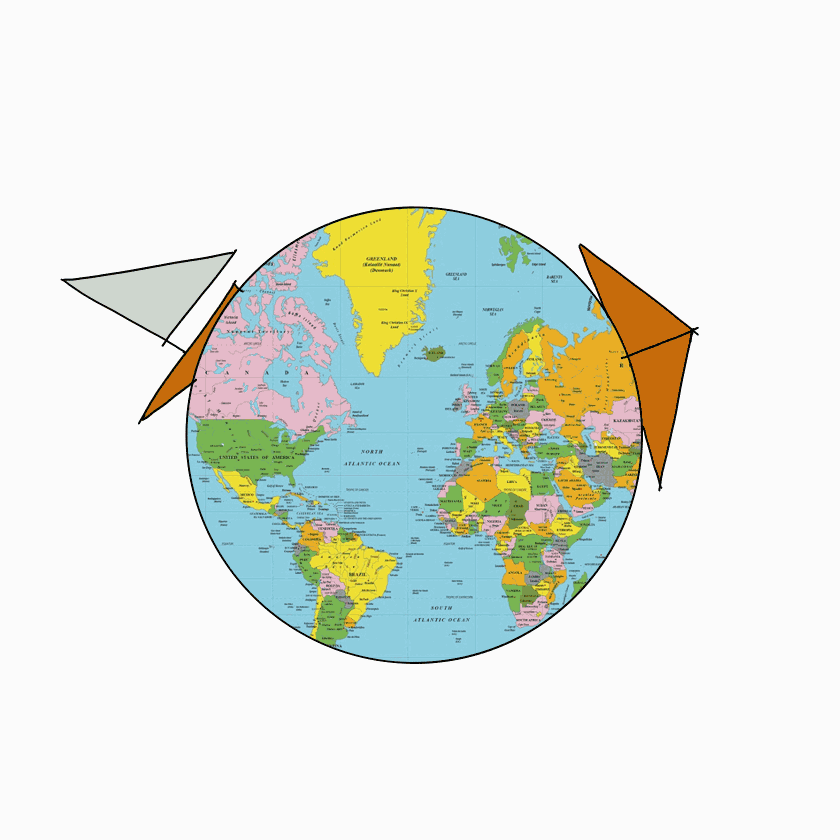
(Illustration by Emil Friis)
The students of the international GLOBE program, which takes students to the States, CBS and Hong Kong, have been hit twice in succession. First, the Hong Kong protests let to rescheduling of the program, and then coronavirus regulations sent everyone home. Five students share their thoughts and experiences and hope to unite in Hong Kong in September. But will the protests return when coronavirus dies out?
Right now, the 54 students from the University of North Carolina in the US, the Chinese University of Hong Kong, and CBS were supposed to be spending the spring together in Copenhagen and studying at CBS as part of the GLOBE program. However, Covid-19 has sent home the students, who are now juggling group work, exams and classes from three different time zones.
“It’s difficult, I must admit. Especially with the time zones. It seems to work if we meet at 15:00 Danish time. However, then the students in Hong Kong must stay up late, and the Americans must get up early,” says Emily Breslau, a GLOBE student from CBS.
She is right. As CBS WIRE is setting up interviews for this piece, the interviewees are in three different time zones, which requires counting hours both forwards and backwards to check whether certain times fit for the interview.
“Because of the different time zones, the course coordinator is prerecording a lot of the sessions for the course, which runs fully online, with the live sessions running three times a day to suit the different time zones,” explains Bersant Hobdari, Associate Professor and Program Director of the GLOBE Program at CBS.
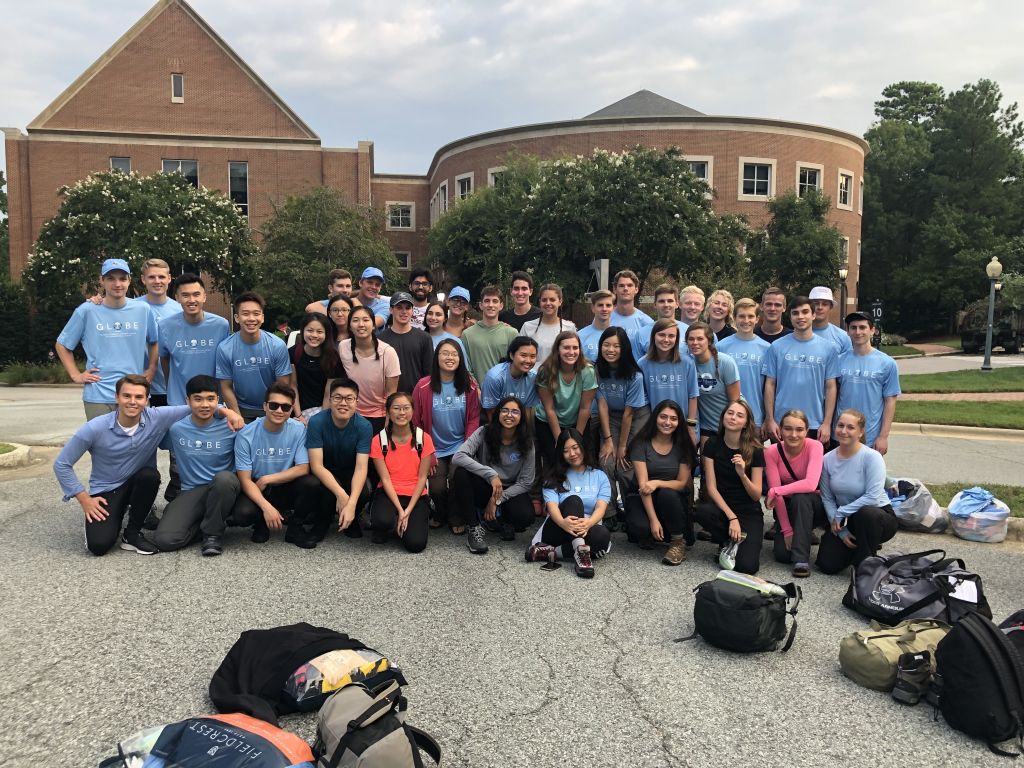
The GLOBE program started their exchange trip at University North Carolina in the fall of 2019. (Photo: Owen Stoneking)
But the coronavirus is not the only issue that the students from the GLOBE program have had to deal with. When the 54 students started their exchange program at UNC at Chapel Hill in the autumn, they could follow the protests in Hong Kong escalating day by day. And eventually, the riots prompted the program to be rescheduled.
“It came as a shock”
In early October 2019, the protests in Hong Kong increased in intensity. And being far away from it all, Arthur Chow, a GLOBE student from CUHK, felt obliged to stay informed of the situation in Hong Kong, while settling into his own exchange experience.
“It was like an internal struggle between guilt, helplessness and being unable to go back. I tried my best to focus on the program and discover my passion there, but that was hard after seeing what was on the news,” he explains.
At the same time, the program directors from UNC, CBS and CUHK had started to have weekly conference calls about the situation in Hong Kong. Would it be safe to send the students to Hong Kong for the spring semester as planned?
“We discussed swapping the semesters so that the students would attend CBS in the spring, and CUHK in the fall of 2020. At the time, no university had any experience of running a whole semester online,” explains Bersant Hobdari and continues:
“Our primary concern was student safety. Nevertheless, our decision came as a shock to the students. Especially the students from Hong Kong and CBS initially resented when we decided to swap the semesters.”
The students from CUHK had planned on going home, while the students from CBS had packed their bags and were looking forward to a whole year abroad. According to Emily Breslau, many of the CBS students had quit their student jobs and rented out their apartments and dorm rooms.
“It was a tough situation. The UNC students knew that either way they would be going abroad, and the CUHK students had set their minds on going home. But I know it was for our own safety, that they wouldn’t send us to Hong Kong in the spring, and the CBS students prepared to make it a blast for the students from the US and Hong Kong. We wanted to show them what Copenhagen is like in the spring and summer time,” says Emily Breslau.
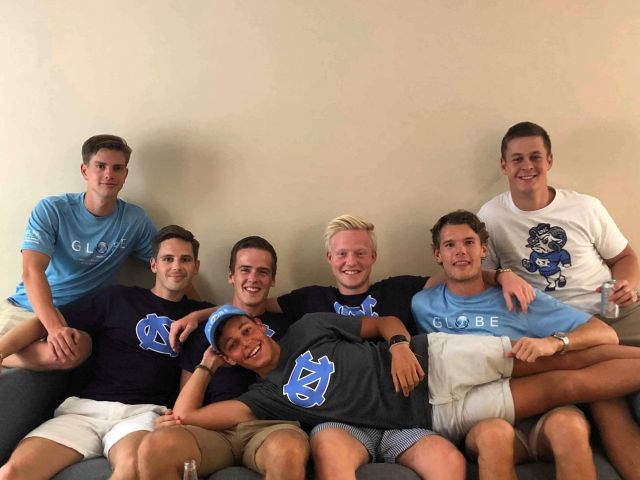
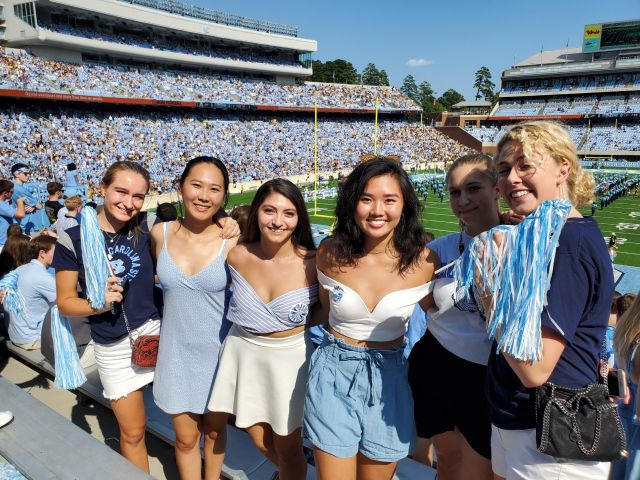
Only a few weeks after the program directors made the decision to swap the semesters, CUHK announced that it would close down the university for the rest of the semester and the beginning of the next.
A frenzy
January came, and the CBS students welcomed students from UNC and CUHK.
“Playing host was so much fun. It was a very different role to take on, as we were the ones who could guide the other students to nice places to eat, where to catch the bus and generally be good buddies,” says Jens-Emil Andreassen and continues:
“We said to ourselves that we wouldn’t whine about not going to Hong Kong as planned, but instead would make this semester a blast.”
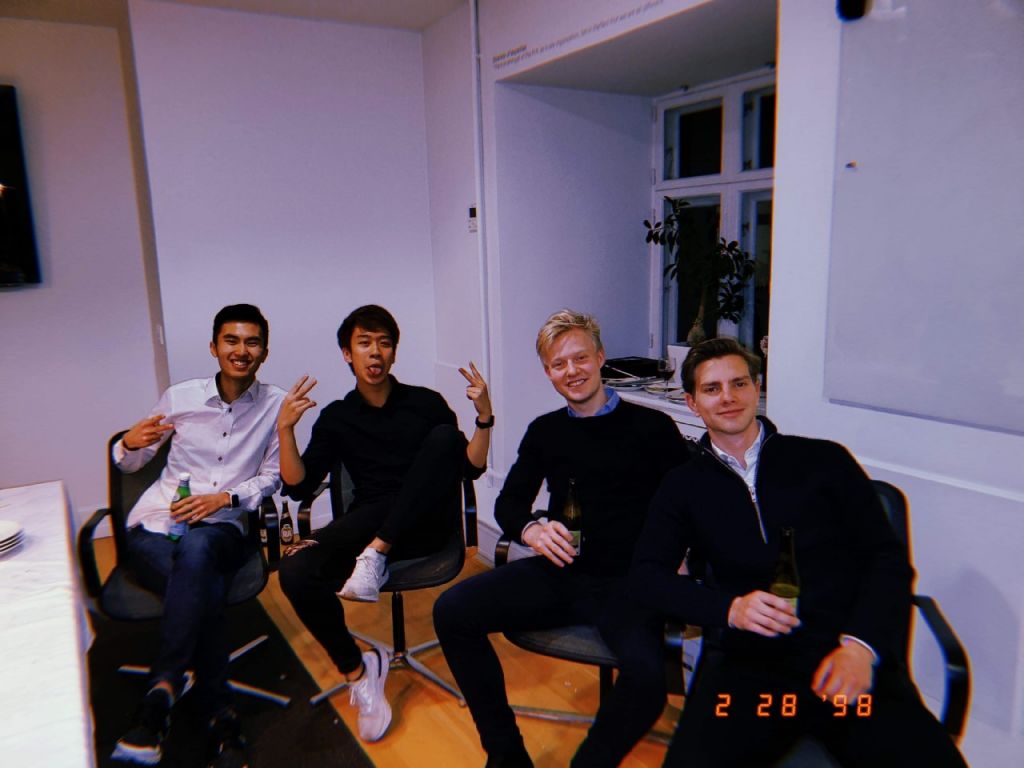
Arthur Chow got about 2,5 months in Copenhagen before they all had to go home due to the pandemic. Photo: Arthur Chow
The students from Hong Kong and the US seized their chance to explore Europe while living in Copenhagen. Owen Stoneking from UNC visited Spain, Portugal, Morocco and Italy, and his fellow student, Michelle He, was in Iceland when news of coronavirus began showing up in the news on a daily basis.
“I was in Rome when the announcement came that they had shut down Milan due to an outbreak of the virus. By the time we returned to Denmark from Italy four days later, it had spread to the rest of Italy. At that point, other countries in Europe were reporting cases, and that was when I thought to myself that it may become a problem for the GLOBE program,” explains Owen Stoneking, adding that when Denmark announced its first case on February 27, everything seemed to speed up. As he describes:
“In just a week or two, Denmark went from having a few cases, to hundreds. Then some CBS students fell ill, and the campus was closed down along with Copenhagen and the rest of the country. And when Trump announced that only American citizens could travel to the US, that was when I decided to book a flight from Copenhagen and go home to the US. We assumed that the program would be cancelled, and 24 hours later, it was,” he explains and continues:
“I remember those days around March 13 being pretty dramatic. The stock markets crashed, major sports leagues got cancelled or postponed. Looking back, it was the right thing to do, but at the same time, if anyone had predicted that all sports leagues would be cancelled, and businesses would close down in a matter of weeks, I’d have said they were crazy.”
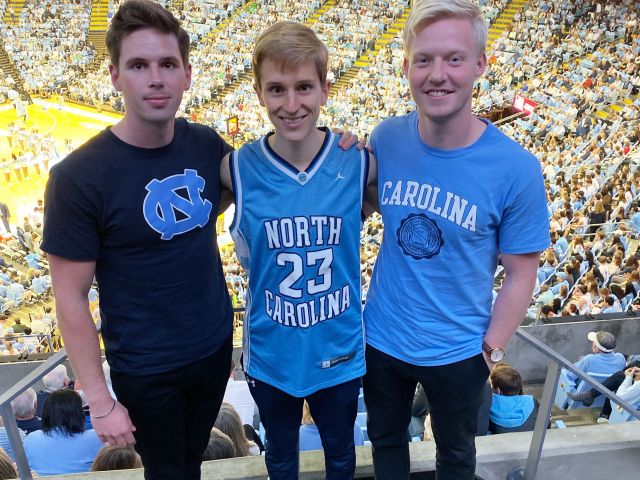
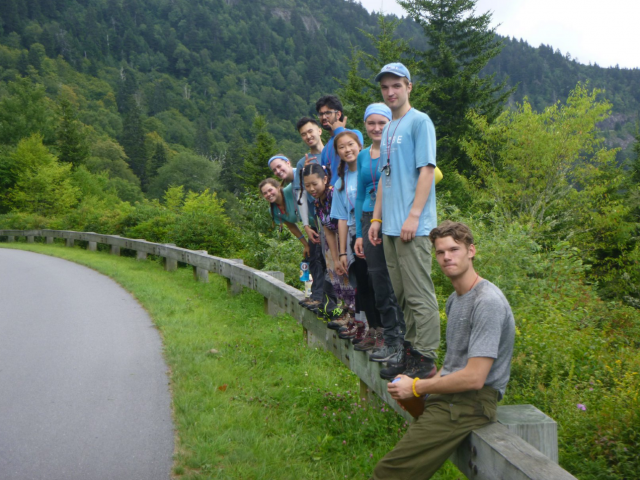
Owen Stoneking’s fellow student Michelle He from UNC also felt that the days up until departure from Copenhagen were hectic.
“I remember Owen saying: I’m leaving. And when the Danish and US governments started talking about border controls, I got worried. It was so hard to keep track of information and news. Then no one could leave, then everyone should go home. It felt like a frenzy,” she says and continues:
“I was desperately sad about leaving, but I spent the last evening with a student from Hong Kong just chilling.”
There is always a silver lining
The students of the GLOBE program are staying in touch and juggling exams, assignments and courses in different time zones online. And the time away has given space to reflect on a semester that in no way turned out as originally planned.
“I think this has promoted an adaptive mindset. Hopefully, later in life and my career, I can look back on this and know how to handle surprises. I think it will make us better leaders, because we know we have to communicate about decisions and reach out to colleagues and ask how they are coping,” says Michelle He.
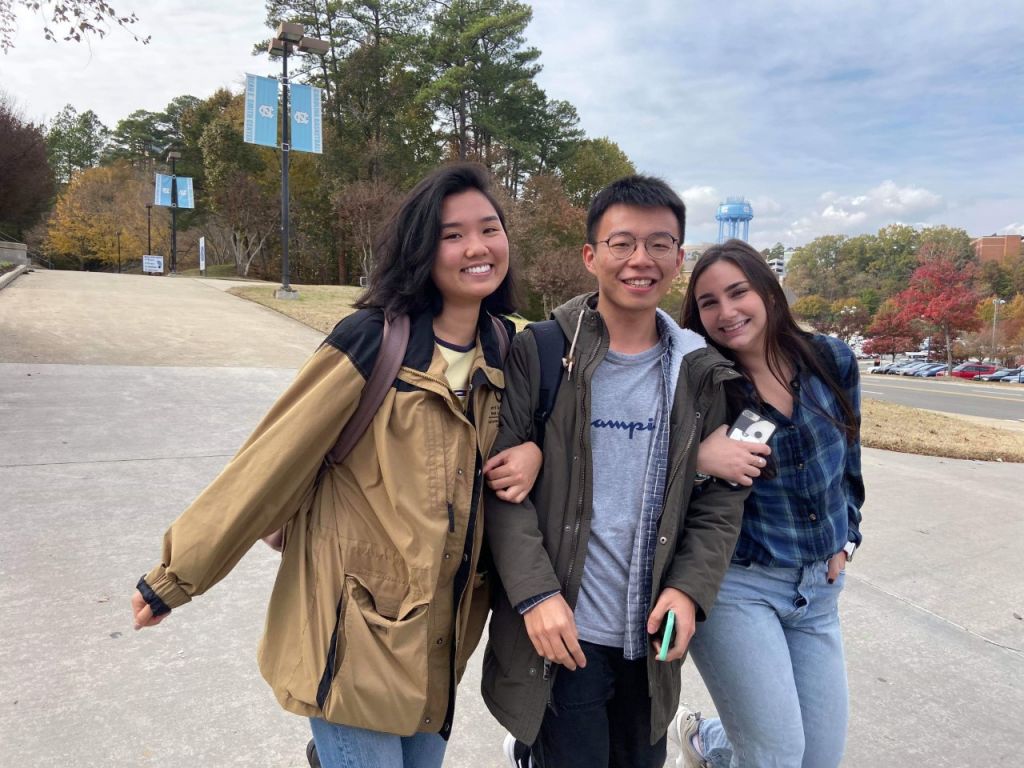
Michelle He, on the left, went home to the US relatively after the Danish borders closed. Photo: Michelle He
For Arthur Chow, the situation has given him time to consider his past three years of studies, as well as thinking and talking about his future too.
“It has forced me to reflect, which is good. I have been reflecting on three years at university, and the meaning of work. Right now, there’s no job security, so I need to think about what skills I’m interested in and want to build on,” he says and continues:
“It has also taught me to look at things from a different perspective. Sometimes, I’ve been thinking why this is happening to our cohort, but it’s a world-wide issue, and it makes you see things from other people’s points of view. And that’s a good lesson to learn.”
Jens-Emil Andreassen has also felt dejected about the whole situation and that he will not get the international experience he signed up for – but then he talked to a GLOBE alumnus, and now he takes a different approach.
“I hope I will look back on this experience as something educational. I talked to a GLOBE alumnus, who said that though it’s tragic that we have been hit by corona, there has been a lot to learn as well. Everyone has had to adjust to the new circumstances, and hopefully we can take that with us onwards,” he says.

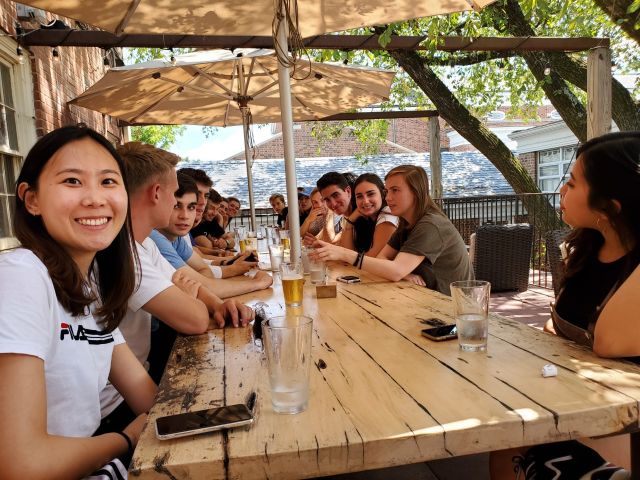
Emily Breslau is also inclined to agree.
“Even though it has been tough, it has given us a different feeling of solidarity and motivation. We will make the best of what we have. And that’s a unique, once-in-a-lifetime experience too,” she says.
When corona dies – will the protests return?
At the moment, the students are looking ahead to the autumn semester. They all agree that it would be “amazing” to meet up in Hong Kong and take the final semester together. And their hopes are high.
But even if the coronavirus guidelines allow the students from America and Denmark to fly out to Hong Kong, a different matter must also be taken into account, points out Bersant Hobdari.
“We have different options, and for now, the situation looks a little more promising in Hong Kong. But we don’t know how this will pan out. Luckily, we have another month before the deadline for finalizing whether the experience will be online or they can travel,” he says and continues:
“But bearing in mind what happened in the fall of 2019 in Hong Kong, with Covid-19 gone, we must be ready to adapt if the protests return.” But we must remember what happened in the fall of 2019 in Hong Kong. With Covid-19 gone, we could face the prospect of the protests returning.



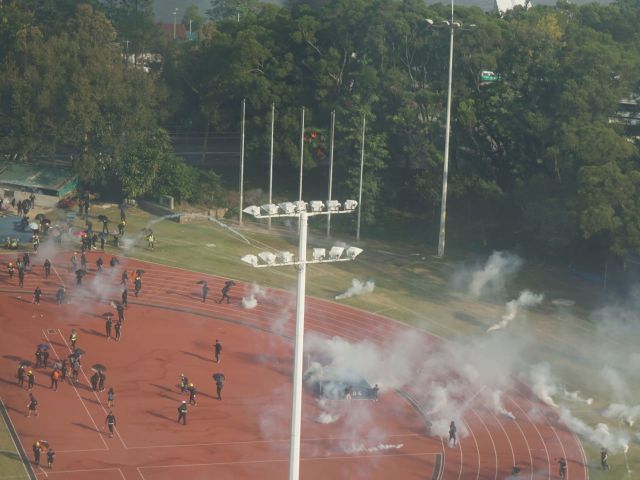
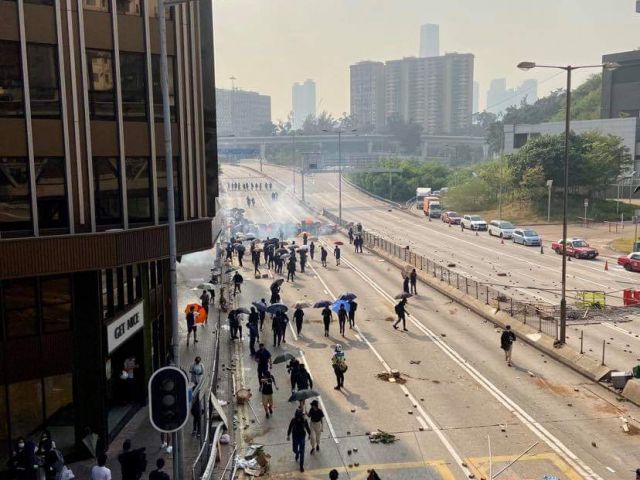
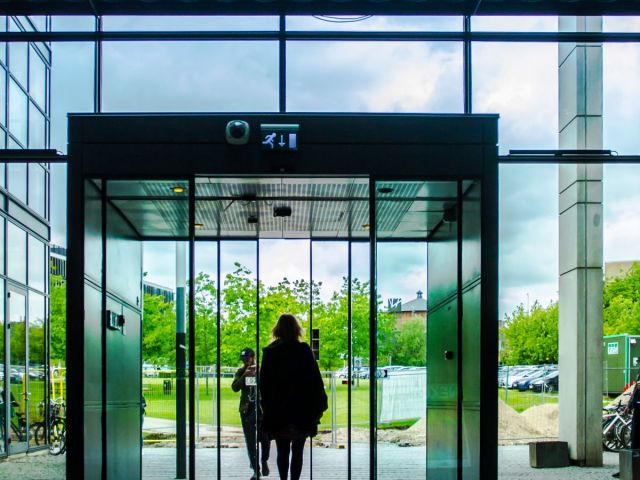
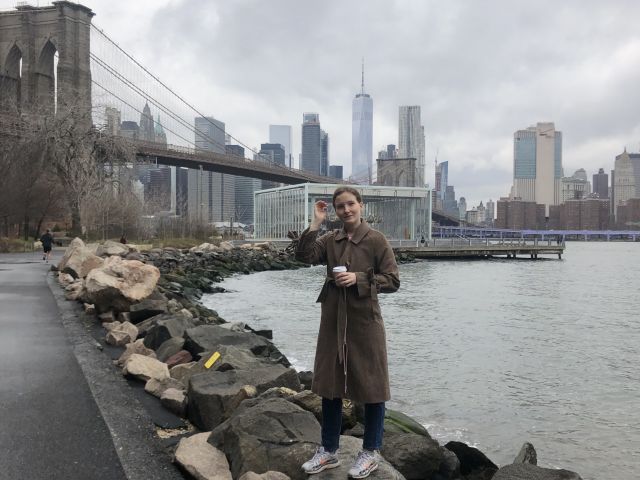
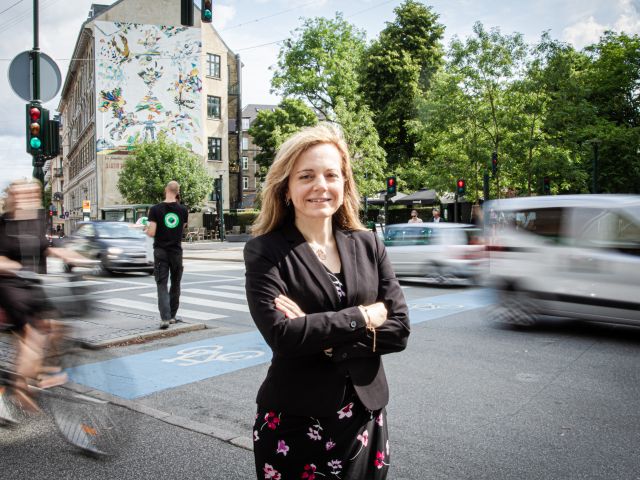
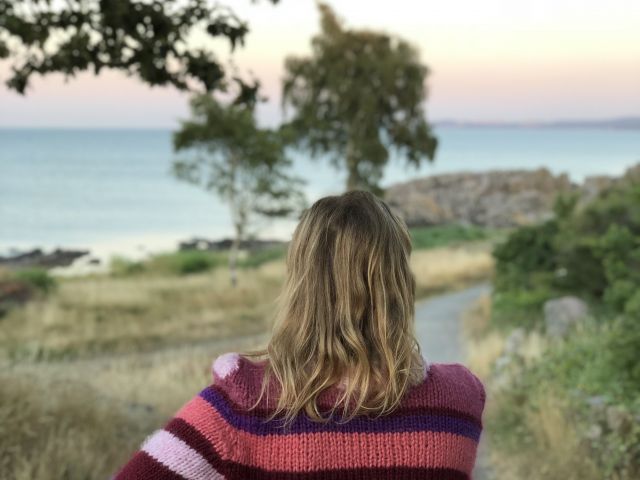
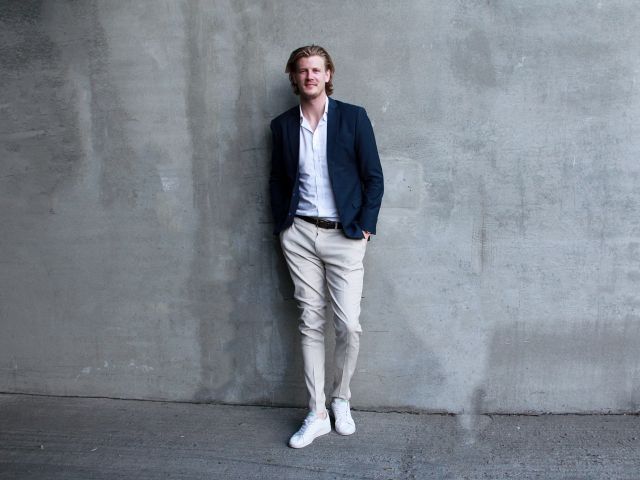




























































































































Comments